EMS2EM Engineering Materials: China's Plastic Ban Impact on Japan
VerifiedAdded on 2022/09/23
|5
|894
|32
Report
AI Summary
This report analyzes the significant impact of China's 2018 ban on the import of plastic waste on Japan's waste management practices. Prior to the ban, Japan exported a substantial amount of plastic waste to China; however, the ban led to a drastic reduction in exports, causing significant challenges for Japan's recycling infrastructure. The report details the immediate responses of the Japanese government, including emergency measures for industrial waste disposal. It then explores the long-term alternative solutions implemented, such as increased investment in recycling technologies to convert waste plastics into chemical raw materials and the establishment of specific targets for businesses to restructure, remanufacture, and phase out plastic products. Furthermore, the report highlights campaigns promoting reduced plastic reliance and the adoption of eco-friendly materials. The conclusion emphasizes the importance of consumer education and cultural shifts to achieve effective plastic waste management.
1 out of 5
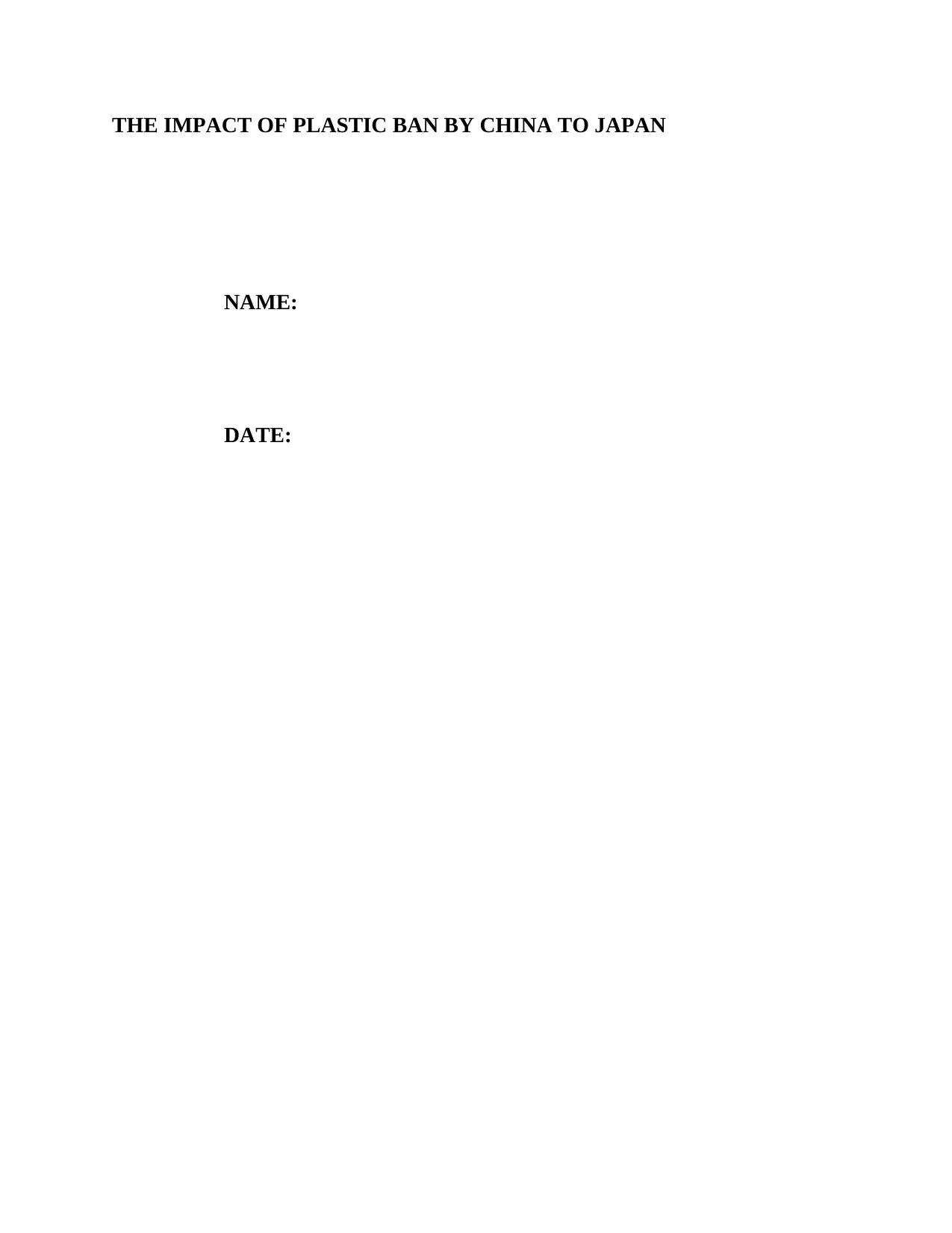
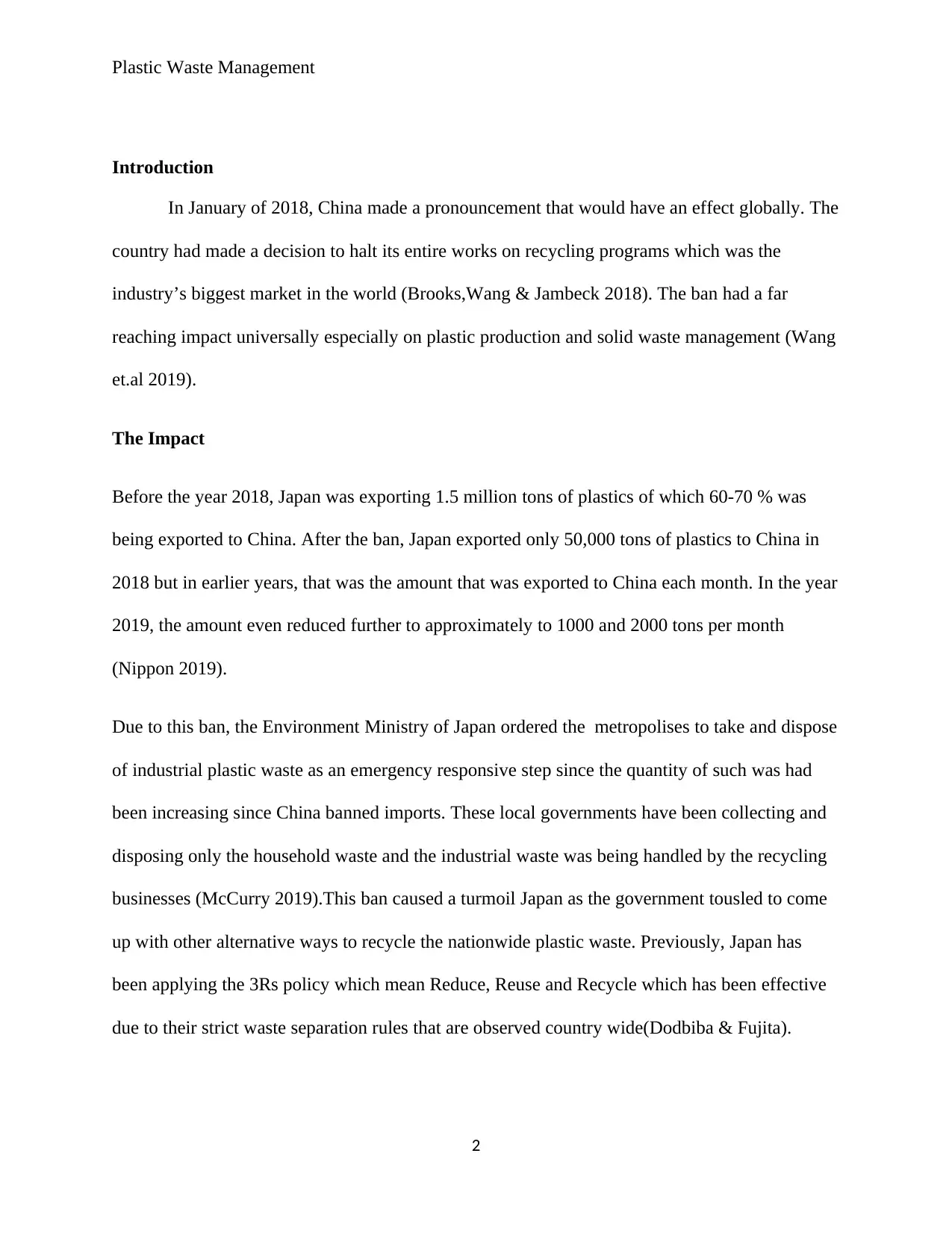
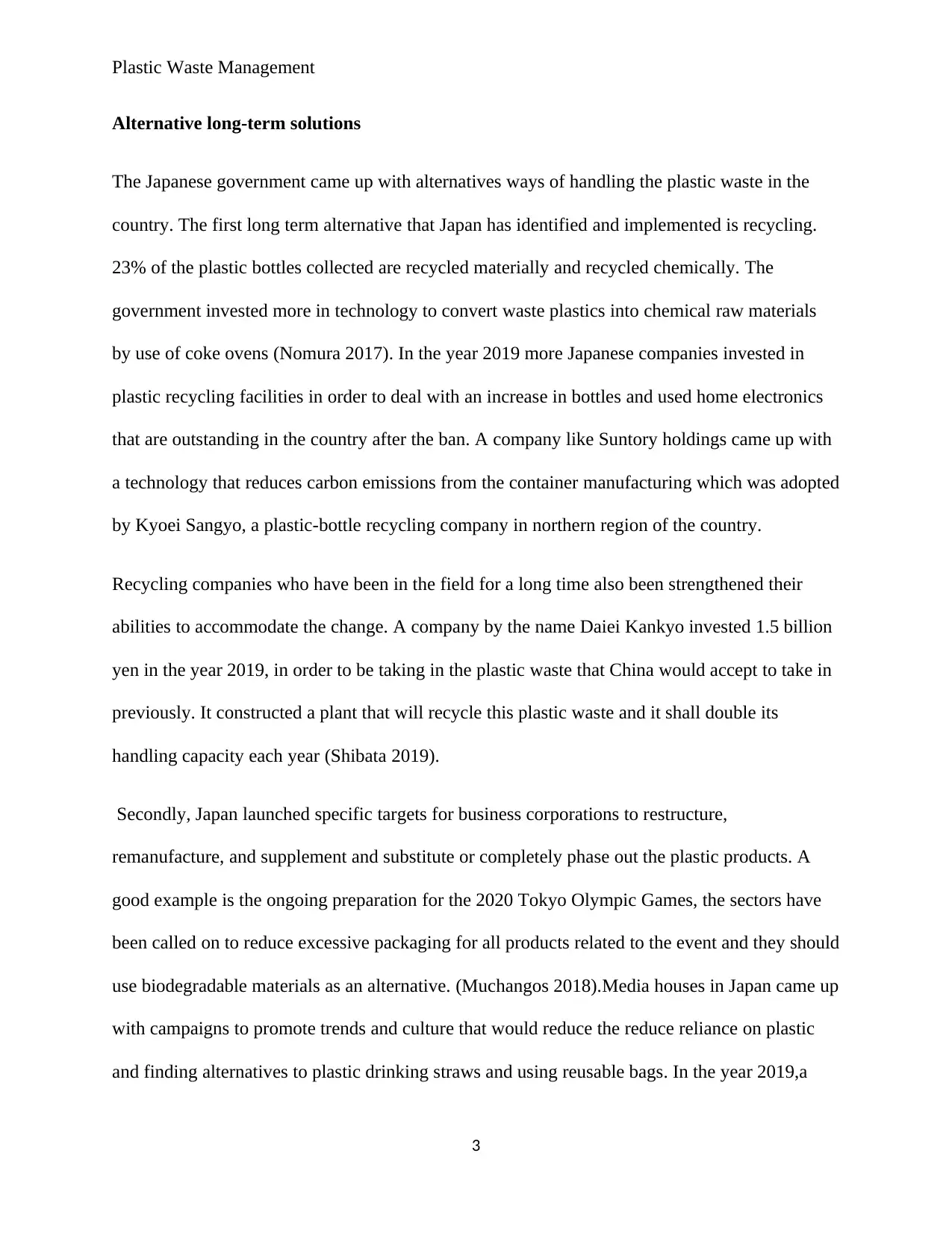

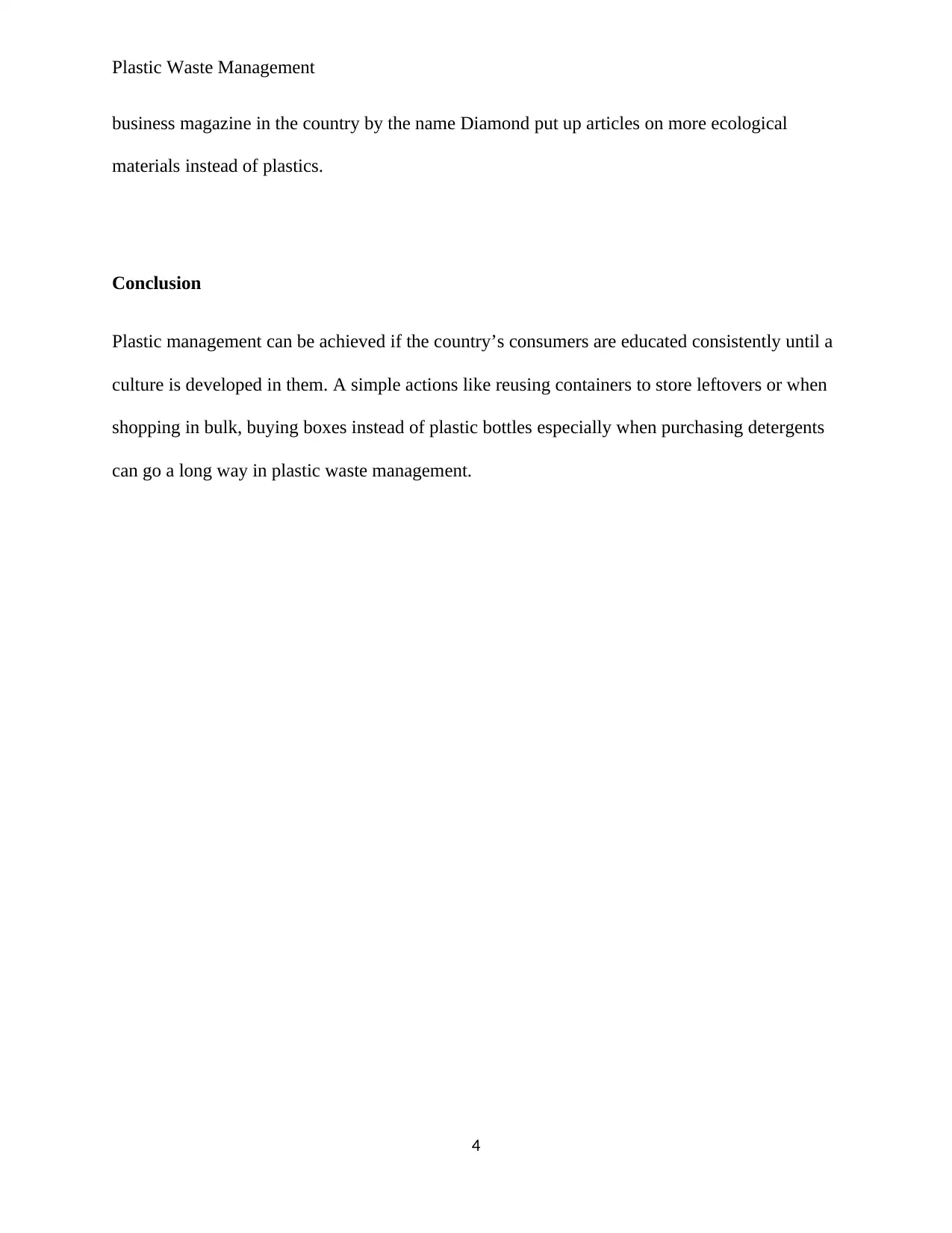
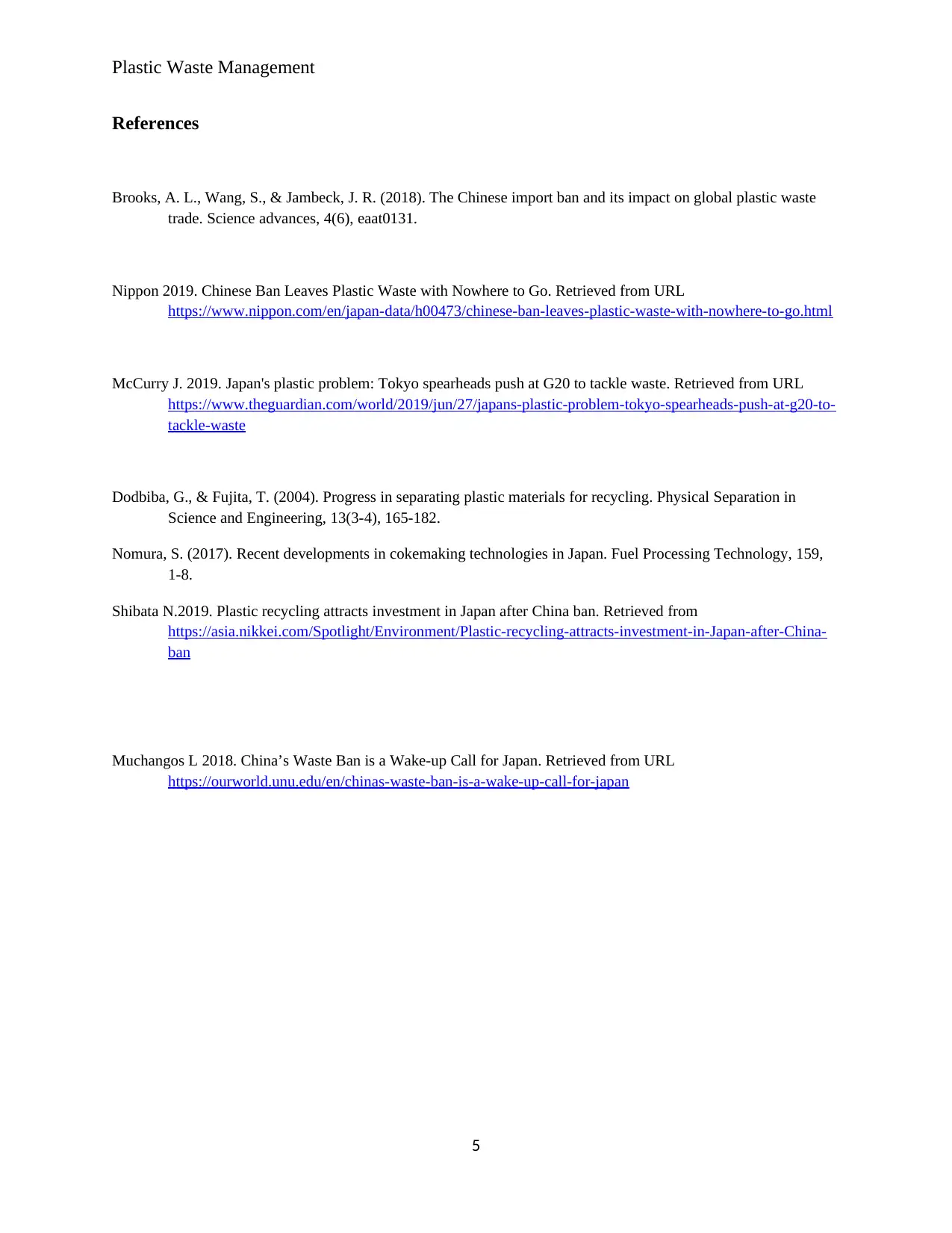





![[object Object]](/_next/static/media/star-bottom.7253800d.svg)